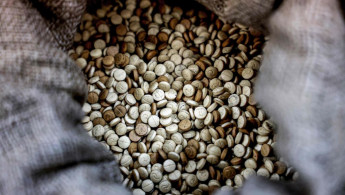EU sanctions cousins of Bashar al-Assad over captagon drug trade
The European Union on Monday imposed sanctions on cousins of Syrian President Bashar al-Assad over the trafficking of stimulant drug captagon, a key source of income for the regime.
An AFP investigation in November found that Syria has become a narco state with the $10 billion industry in captagon dwarfing all other exports and funding both Assad and many of his enemies.
The latest move saw the EU follow Western allies, the United States and Britain, in imposing asset freezes and visa bans on Wasim Badi al-Assad and Samer Kamal al-Assad.
"The trade in amphetamine has become a regime-led business model, enriching the inner circle of the regime and providing it with revenue that contributes to its ability to maintain its policies of repression against the civilian population," the EU said.
A third cousin of the president, Mudar Rifaat al-Assad, was also included on the blacklist, although no explicit reason was given.
The US Treasury Department says Samer Kamal al-Assad owns a factory in the coastal city of Latakia that produced 84 million captagon pills in 2020.
Others targeted in the EU sanctions include Nouh Zaitar, Lebanon's most famous drug lord who is on the run from authorities, and Hassan Dekko, a Lebanese-Syrian drug kingpin with high-level connections in both countries.
Saudi Arabia has become by far the largest market for captagon, an amphetamine derived from a once-legal treatment for narcolepsy and attention disorder, with the inexpensive drug drawing both the wealthy party set and poor labourers in an Islamic country where alcohol is taboo.
The EU also imposed sanctions against private security firms for helping the Syrian regime recruit fighters and Russian engineering and construction company Stroytransgaz over its control of the country's largest phosphate mines.





 Follow the Middle East's top stories in English at The New Arab on Google News
Follow the Middle East's top stories in English at The New Arab on Google News
![Both Hamas and the Palestinian Authority welcomed the ICC arrest warrants [Getty]](/sites/default/files/styles/image_330x185/public/2024-11/GettyImages-2178351173.jpg?h=199d8c1f&itok=TV858iVg)

